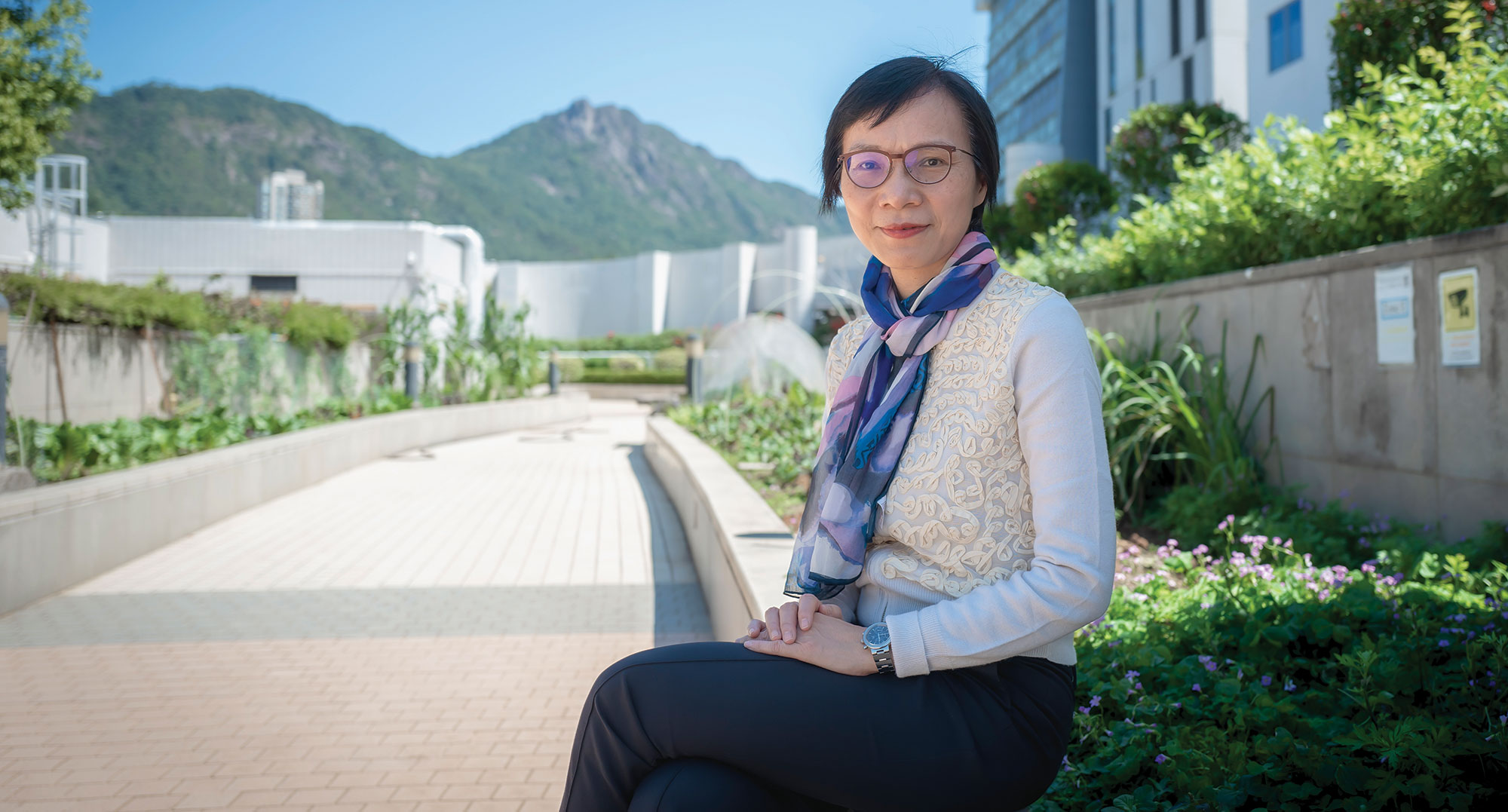Empowering Youths for Social Rejuvenation
In our fast-paced and ever-changing world, teenagers today face immense stress from multiple aspects of their lives. Professor Cherry TAM believes social entrepreneurship education and training can be key solutions to help enhance the psychological strength, resilience and self-esteem among young people todayIn an increasingly competitive, complex and fast-paced world, it is not surprising that our youths are facing the kind of stress and challenges unseen previously. In fact, youth mental health has emerged as a defining concern of our time.
A recent study commissioned by the Hong Kong government has revealed that around 24 per cent of Hong Kong’s youth aged between six and 17 have experienced one mental health issue in the past year. Ominously, more than eight per cent of secondary school students have thought about suicide. Comparing these to global trends, Hong Kong is on the higher end.
While the situation is alarming, there is much that can be done, says Professor Cherry TAM, Associate Professor and Associate Head of the Department of Social and Behavioural Sciences at City University of Hong Kong. But first, understanding the root cause is important.
Creating Opportunities
According to Tam’s research, key factors contributing to this alarming trend are academic stress, family relationships and interpersonal relationships. To address these issues, early prevention and raising awareness are important. And society also needs to create enough opportunities for young people to explore their interests and personalities through collaborations.
“Right now, we have many arrangements, measures and resources that we have put into mental wellness, but most of the resources and emphasis need to be put into early identification, early prevention and early treatment,” Tam says.
Indeed, the Education Bureau recently awarded each of the city’s local schools HK$80,000 to promote mental health initiatives. While this is all heading in the right direction, Tam is eager to see more being done.
From her wealth of experience and research, she believes that young people need to find meaning and direction in their lives. She is an advocate for social entrepreneurship education and training, which she says is key to enhancing psychological strength, resilience and self-esteem among young people.
“We can’t just sit them down and give them a lecture, we need to encourage young people to have more life exposure, more experiences and to have greater collaboration and interaction with other people,” she said. “Social entrepreneurship education and training would allow them to have more understanding of their strengths, weaknesses, and interests and to just simply know more about themselves.”
Discover Life Purpose
To this end, her work has been looking at the impact of social entrepreneurship education and how taking a meaning-centred approach can contribute to resolving mental health issues among the young.
According to this approach, meaning-centred is premised on existential philosophy which states that every person has an innate desire to live a more meaningful life, regardless of whether they are in a good or bad situation.
“So, the idea is to appeal to this,” Tam explains. “When they can’t find meaning or they don’t know their purpose, then they might engage in addiction, depression, or even aggression as a coping mechanism. If they can find meaning in life and know more about themselves, we can tackle the issues.”
For this reason, she says that social entrepreneurship education is a wonderful way to encourage young people to develop their business skills and immerse themselves in a positive way in society, while finding meaning in their lives. This is because at the heart of it all, social entrepreneurship education is about the greater good.
We can’t just sit young people down and give them a lecture, we need to encourage them to have more life exposure, more experiences and to have greater collaboration and interaction with other people
Professor Cherry Tam
Contrary to traditional entrepreneurship where employment or youth employment is understood as wage employment with a focus on a lifelong career, with social entrepreneurship education, there is an emphasis on both economic and social values and doing something for the greater good. For example, developing apps that can help the elderly.
Tam explains that youths can innovate, develop their creativity, observe the market and start their own business. “They would also be able to make an impact by going a step further to use a business to address a social problem.”
Young people can then take ownership and develop solutions to social problems through team-based, project-based training with a focus on technology and mental wellness. And the benefits are priceless.
“These can enhance the awareness of the social problems while, at the same time, to enhance their entrepreneurship knowledge and skills, they will also need to know how to manage a business to serve the community to address the social problems,” she says.
The Power to Make Changes
Further to that, youngsters develop a strong sense of self-awareness and self-confidence, and the ability to work together to inspire each other to identify a social problem, think about a possible solution and capitalise on technology to address the problem. When youths are empowered to make social changes, that’s when they can really gain a sense of self-worth and find meaning, Tam says.
With such obvious benefits, Tam is passionate about bringing these ideas to policymakers. She says that there is still a gap for social entrepreneurship education, and this is the impact she wants to bring to the table.
She says their research results, particularly in primary and secondary schools, suggest that the government puts more resources into the curriculum and allows it to lead social entrepreneurship education and training, to inspire the students to the market.
Calling it a win-win situation, she believes that it is in this awareness to give back to society that social progress in mental health can be made, while much good can be done for society where it is needed.
Tam adds that young people can make use of their creativity and innovation to develop their own businesses. “This is one way for them to develop a lifelong career to build up their own business and through that business or their success, they can create more employment, jobs and opportunities for other people,” she says.




